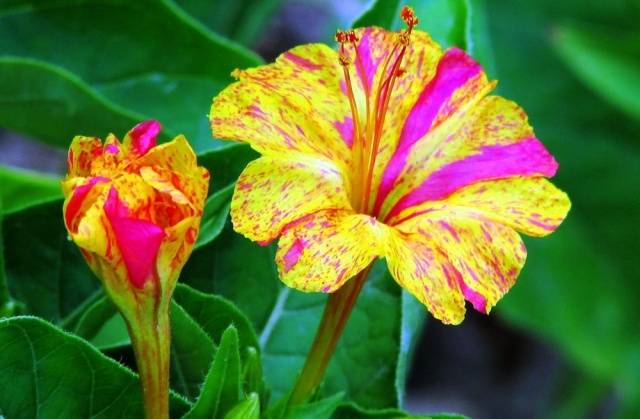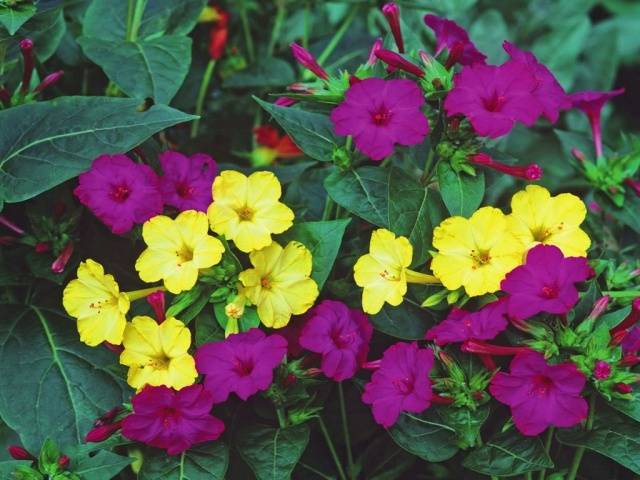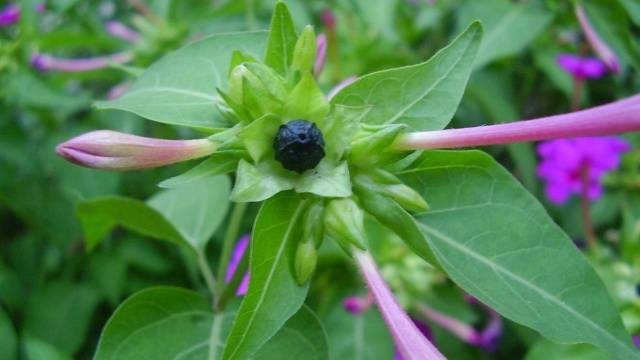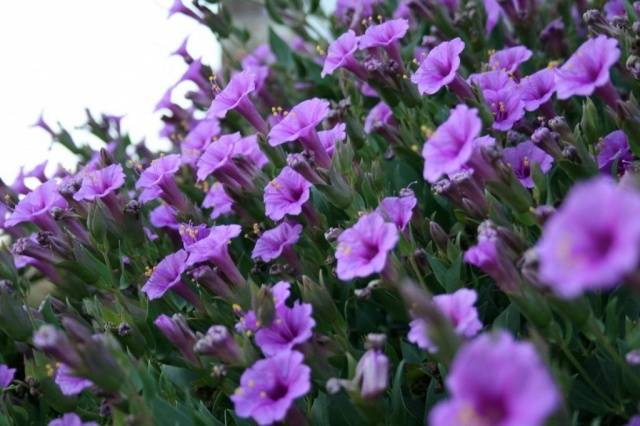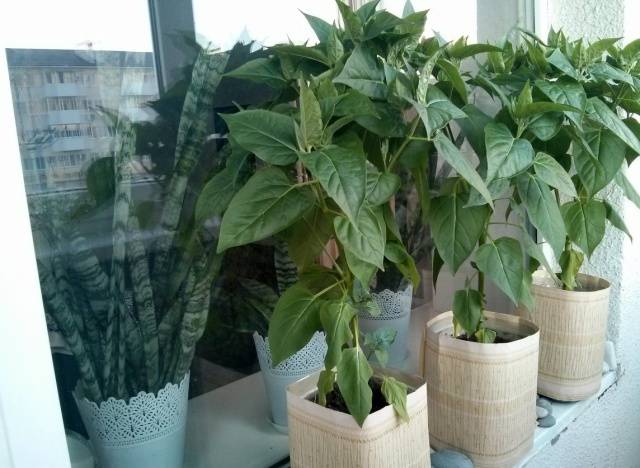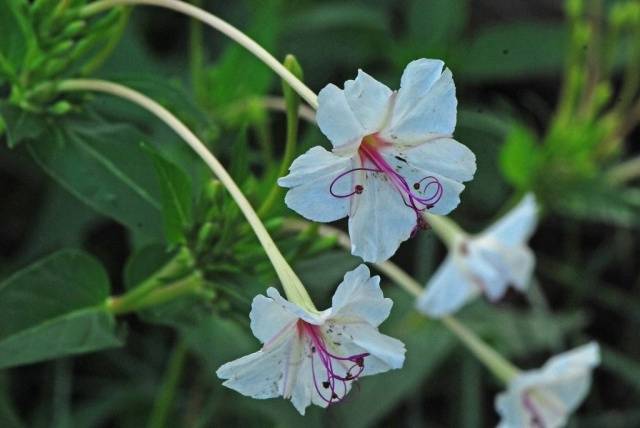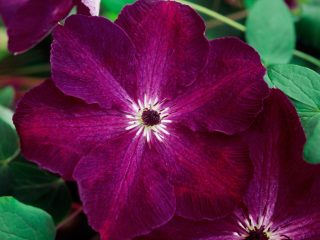Content
As a rule, flowering plants love the sun and bloom their buds under its warm rays. But there are flowers that prefer moonlight to sunlight, and one of these plants is mirabilis. Popularly, this flower is better known as zorka or night beauty. Mirabilis is very unpretentious, tolerates heat and drought well, blooms with bright inflorescences in rich colors - it is not surprising that flower growers and landscape designers love it so much. The mysterious night beauty deserves to be noticed.
This article will tell you about growing mirabilis from seeds, when to plant this flower in open ground and as seedlings, and how to care for the plant.
Features of the night beauty
Mirabilis is native to Mexico. The ancient Aztecs first noticed this plant, noting not only the amazing beauty of night flowers, but also their medicinal properties.
Later, Mirabilis seeds came to Europe, where the flower quickly gained popularity and became widespread. If in its homeland mirabilis is a perennial plant, then in colder climates it is grown as an annual - the roots of the flower are not able to withstand even minimal frosts.
Mirabilis belongs to the very rare family of Nociformes or Nyctaginaceae plants. There are about fifty species of night beauty in the wild, but only one of them has taken root in Russia - Yalapa.
Characteristics of night mirabilis:
- Mirabilis jalapa is a herbaceous plant;
- Zorka bushes are compact and powerful;
- plant height can vary from 50 to 120 cm depending on the variety and growing conditions;
- the root system is powerful, the roots are tuberous, swollen - it is this structure that allows the flower to tolerate drought well;
- inflorescences look like gramophones;
- the color of the flowers can be very different (from white to orange and purple); inflorescences with stripes, speckles, and two-color mirabilis are often found;
- The structure of the mirabilis flower is surprising in that it completely lacks a corolla, and instead of an inflorescence there is a calyx (in other plants it is colored green and has a small size);
- the diameter of the inflorescences can be 3.5-5 cm;
- Mirabilis blooms only at night, in cloudy and cool weather;
- Mirabilis has a very rich aroma that attracts moths and butterflies;
- each flower “lives” only a couple of hours, after which it rolls up into a tube again and fades;
- Mirabilis fruit is a wrinkled dark brown capsule containing one large seed inside;
- Dawn flowering continues from June until the first frost;
- Nocturnal mirabilis propagates by seeds, dividing the bush and woody cuttings.
Growing
Since in Russia mirabilis is grown as an annual plant, it is more convenient to propagate it by seeds. Of course, a gardener can cut a cutting from a bush or divide a flower by its roots, but all these actions will not make sense, since in winter the plant will die anyway.
Selecting a location
When choosing a place for dawn in your garden, you need to remember the tropical origin of this plant. Mirabilis is, indeed, incredibly unpretentious and is able to bloom even in the most difficult conditions and on clay soils, for example. But, if a gardener dreams of lush flowering and large beautiful flowers, he needs to provide the mirabilis with just ideal conditions:
- find the warmest and sunniest place in the garden;
- think about the possibility of shading flowers in the afternoon (due to intense heat, mirabilis may stop throwing out buds);
- protect flowers from drafts and strong winds;
- prepare slightly acidic or neutral soil;
- Mirabilis can tolerate drought, but excessive moisture is detrimental to this flower, so the soil should drain well and not be in a low-lying area;
- the soil should be loose, nutritious, and well permeable to air and moisture.
Landing in the ground
In principle, the climate of most of Russia, with long and warm summers and minimal precipitation, is quite suitable for a night beauty. All this allows you to grow mirabilis from seeds at home, without having to buy seedlings.
To answer the question of when to sow mirabilis seeds in a flower bed, it is necessary to analyze the climatic situation in a particular region. To achieve mirabilis flowering at least by the end of June, it is necessary to plant its seeds in the ground by the first days of May.
If by this time the soil has not warmed up well enough and there is a threat of return frosts, it is recommended to use mini-greenhouses. In such cases, large oval mirabilis seeds are laid out in pairs at a distance of 20-30 cm from each other, deepening them into the soil no more than two centimeters. After planting, the seeds are watered with warm water and covered with a transparent film. Remove the film when mirabilis sprouts appear from the seeds and the weather stabilizes.
Dawn seedlings
Growing mirabilis directly from seeds is an easy and quick process. However, for some gardeners it may be that the dawn blooms earlier, or the climate in the region is cold, which does not allow early sowing of seeds in the ground. In such cases, Mirabilis is grown in seedlings.
It is necessary to sow zorka seedlings in the first half of April, so that after 1.5 months the mirabilis can be planted in the ground. Sowing night beauty seeds for seedlings is not a difficult task, but even here you need to follow some rules:
- Choose deep cups or pots for planting flowers. The Mirabilis root system goes deep and not to the sides, so the roots will need a lot of space.
- Prepare or purchase a ready-made substrate. The soil for seedlings is prepared from equal parts of turf soil, peat and river sand.
- Immediately before sowing, it is recommended to add a handful of wood ash to each pot.
- Mirabilis seeds should be soaked in a damp cloth for 12-20 hours (you don’t have to do this, then the seeds will germinate a couple of days later).
- Place 2-3 seeds in each glass or pot. These seedlings are quite large, the plants turn out powerful.
- The seeds are buried no more than two centimeters and sprinkled with dry soil on top.
- Water the plantings with warm water and cover with a transparent film.
Now you need to remove the seedlings to a warm place with a constant temperature of 23-25 degrees. After 10-12 days, the seeds will germinate, then the cover can be removed and the pots placed on the windowsill.
At the end of May, the seedlings of the night beauty are transferred to a permanent place. The holes are prepared in advance, leaving an interval of 30-50 cm between them (depending on the variety of mirabilis and the height of the bush) and fertilizing with a mineral complex.
Flower care
Everything is clear about how to grow mirabilis from seeds. Now it’s worth talking about the rules for caring for night flowers. Although the dawn is very unpretentious and usually does not cause any trouble to the owner of the site, like any cultivated plant, it needs minimal care:
- Mirabilis needs regular but not very frequent watering. During periods of drought, it is recommended to water the flowers generously once a week. If the grower notices that the number of inflorescences on the bushes has decreased, you can water more frequently - after 1-2 days. When there is enough natural precipitation, there is no need to water the night beauty; it suffers more from excess moisture than from its lack.
- Mirabilis needs to be fed at least three times per season.. The first fertilizer should be complex and contain nitrogen; it is applied immediately after planting the seedlings in the ground or before planting the buds. The flowers are fed the second time in mid-summer, the third feeding is done at the end of August. The last two feedings consist of a complex of minerals, but nitrogen is no longer needed at this stage; it will make flowering more sparse.
- Diseases and pests almost never affect mirabilis., so you won’t have to process the bushes.
- In order for the flowers to be strong and healthy, the soil under the bushes must be loosened after each rain or watering, and also pulled out weeds.
- In mid-autumn, the zorka bushes are dug up and disposed of, having previously collected seeds from the mirabilis for the next season.
Conclusion
Photos of blooming mirabilis do not leave anyone indifferent: it is not for nothing that this flower was revered by the wisest ancient peoples (Aztecs, Egyptians).Zorka is rightfully considered the queen of the night, illuminating the garden with bright colors when other flowers are folding their buds and fast asleep.
Growing mirabilis is quite simple; to do this, you just need to sow the seeds in the ground or plant them as seedlings. Complex plant care is also not required, so the night beauty is perfect for the most inexperienced gardeners.
More information about growing mirabilis seedlings is described in this video:
